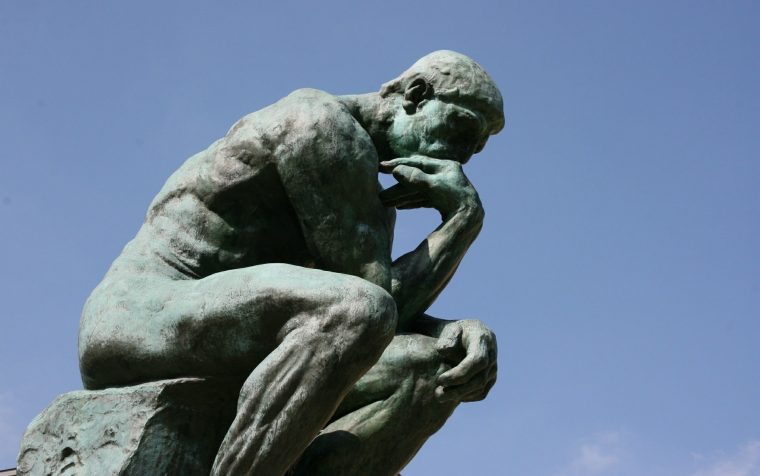We are starting something new in TEMPO: a column that focuses on those who are beginners to gifted education. In this column, I hope to touch on several basic issues: familiar ideas, new research, and potential changes taking place in the gifted community. I plan to draw on the topics that I teach in an introduction to gifted education course. If you have specific questions, I would welcome them. Please send questions to me at abatenburg@smu.edu.
The first topic I cover in my course is the definition of giftedness. Historically, how we define giftedness has been the key to identification and services. Whether you like Renzulli’s Three-Ring Conception of Giftedness, Gagné’s Differentiated Model of Giftedness and Talent, Sternberg’s focus on wisdom, or Dabrowski’s Overexcitabilities, we all rely on a particular definition in order to identify our students. In Texas, the State Plan for the Gifted includes our state definition, which states, “‘gifted and talented students’ means a child or youth who performs at or shows the potential for performing at a remarkably high level of accomplishment when compared to others of the same age, experience, or environment and who:
(1) exhibits high performance capability in an intellectual, creative, or artistic area; (2) possesses an unusual capacity for leadership; or
(3) excels in a specific academic field.”
There are many overlapping, yet sometimes contradictory, definitions, and each provides us some guidance as we identify our students. (I will return to the usefulness of these various definitions in the next column.) In this first issue, however, I would like to discuss something that lies beneath these definitions: what we believe about intelligence. It turns out that what we believe about intelligence and ability can have profound effects for what we think giftedness is. It all starts with the book Mindset: The New Psychology of Success by Carol Dweck. This book can change fundamentally how you think about praise, what habits you encourage in your children, and how you foster self-esteem and greater self-efficacy. It will make you think twice about the things you say around your children if you are a parent or a teacher. (After I read it as a fifth-grade teacher, I found myself tongue-tied for several weeks! The ways in which I was praising my students needed an overhaul, and I didn’t know what to say at first.) This book will make you think about the messages you send to yourself every minute of every day. It provides direction for reaching perfectionists and gifted children, particularly those who put in little effort. It describes findings from neuroscience and psychology in ways that will help you encourage students of all ages to see their intelligence as something they can improve and develop with effort.
The basic premise of Mindset is that everyone falls into one of two categories: a fixed mindset or a growth mindset. Fixed mindsetters believe in natural ability, that you are born with a certain amount of talent or intelligence, and you can do little to change that. You can learn new things, even become an expert in an area, but you cannot change how intelligent you are. You can practice basketball or the violin or painting for hours each day, but you’ll never be a Michael Jordan, an Itzhak Perlman, or a Picasso. You’ll get better, but you won’t improve all that dramatically from where you started with your inborn talents. Another important piece of the fixed mindset is that, perhaps ironically, effort reflects poorly on you. If you are truly talented, truly smart, a truly gifted athlete, then achievements will come naturally, without apparent effort. Fixed mindsetters therefore have to prove themselves on a daily basis in order to keep up appearances—to look good and maintain their image. They typically do not try new or more challenging things because they cannot afford to fail. Failure is too big of a risk. People with a fixed mindset have confused their performance with their self-worth. Failure means they are unworthy in their eyes: “I am a failure.”
On the other hand, growth mindsetters believe that you can always change your basic ability, whether it is intelligence or talent or anything imaginable. Practice, learning from mistakes, and taking risks are the ways everybody learns and improves—even geniuses. Challenges and feedback (especially constructive criticism) are always welcome, as that is how growth mindsetters view the way to gain the greatest development of skills. This view leads to better interpersonal relationships, a greater sense of being in control of one’s life, and a love of learning. Hard work and dedication are the keys to success in any venture. Success and failure are things that happen in life and do not determine the growth mindsetters’ essential views of themselves: “I have failed, rather than I am a failure.”
The key to which mindset you develop as a child has to do with the level of challenge you receive in school and how you are praised for your performance. Dweck says that we have given excessive praise for tasks that are too easy for children. Gifted children are particularly at risk for this type of situation. Gifted children are often underchallenged in schools. Yet, we say to them, “How smart you are!” when they finish an assignment quickly and with 100% accuracy. This leads them to think that “smart” means “quick and easy and perfect.” When they finally do run into a challenge, they believe they are not smart anymore. Effort, in their eyes, means they are stupid.
I spoke to one of my undergraduate students the other day. She was grade skipped from kindergarten to first grade when she entered school, but was tested at the sixth grade level in math at that time. As a sophomore in college, she is still looking for challenge, even though she started what would seem to be a very difficult engineering program last year. It’s still not challenging enough for her. She has added education to her list of majors, because she doesn’t want other kids to go through what she went through—missed opportunities.
There are a whole host of other personality characteristics that go with mindset, and Dweck has chapters about how both types of mindsets manifest in sports, business, and personal relationships. Fixed mindset people achieve great success, but their examples also paint a picture of a very stressful existence that may lead to short-lived success. Growth mindset people, on the other hand, achieve similar successes, live in a world in which mistakes are welcome, and may sustain their success over the long term in a more healthy way.
Two great examples of the mindsets used throughout the book are drawn from John McEnroe and Michael Jordan. McEnroe, a tennis star from the time he was very young, used to throw incredible temper tantrums if anything went wrong in a match. If he lost, then he blamed the official, his training, the sun, and even one time, his shoes. The losses were never his fault. He once lost a match to his brother, then wished his brother would lose the tournament so that he himself wouldn’t look so bad. To McEnroe, winning was a confirmation of his talent and, therefore, of his self-worth as a human being. He couldn’t lose for reasons internal to himself; it psychically cost him too much.
Jordan, on the other hand, was legendary for his hard work. After every game, after every practice, he shot 100 consecutive free throws before he went home. If he missed the game-winning shot at the end of a game, then he would practice that shot continually until he felt like he got it right. He took a huge risk in trying baseball at one point in his career; he wasn’t any good, but he learned a lot about himself. He was always trying to improve himself on the court and worked harder than anyone else on his team.
At SMU—in the classroom rather than on the court—I require my undergraduates in educational psychology to read Mindset. Many of these young adults are blown away by the ideas presented in the book. One example gives me great hope that mindsets can be changed, and can be changed with just a little awareness. I spoke with one student recently who was greatly affected by reading the book. It was week 3 of classes, and she was a bit behind; she had missed one quiz. She told me that normally she would have dropped the class at that point, thinking there was no way to catch up, and she would fail the class. This fixed mindsetter made a different decision this time. She made an appointment with me to talk. She told me her story—how she had always needed to get straight As, how she would drop anything that wasn’t going well, and how she was constantly stressed. She believed that her striving for straight As came at the expense of actually having learned anything. But she wanted to be different. After reading Mindset once, and participating in two class discussions about it, this student made a different decision.
It’s not easy to change your mindset. I am a former gifted kid who experienced a lot of great enrichment activities in school but never much challenge. I am a recovering perfectionist, a fixed mindsetter, and though I read this book more than 10 years ago, I still struggle. The fixed mindset remains my default setting. However, I am better able to argue with that mindset now, better able to give myself the kind of encouragement and praise that reflects a growth mindset, and better able to set realistic goals for improvement. Reading this book made me a better teacher for my students and a more centered individual. I highly recommend it.
Ann Batenburg, Ph.D., serves as a clinical assistant professor in the Simmons School of Education and Human Development. Dr. Batenburg earned her doctorate in teaching and learning with a focus in gifted education from the University of Iowa in 2011. She also holds two master’s degrees: one in special education from Northern Illinois University in DeKalb, IL, and one in teacher leadership from North Park College in Chicago. She teaches a variety of undergraduate and graduate teacher education courses with a focus on gifted education. Dr. Batenburg has several years of elementary teaching experience in the Chicago area. She taught fifth grade for 9 years and students with special needs for 5 years. At the college level, she has taught undergraduate and graduate courses at the University of Iowa, Cornell College, University of North Carolina at Charlotte, and Salem College. Her passion is working with children who are gifted and talented, as they are often the children who are left without services in our schools. Her research interests center on examining factors that contribute to talent development, other issues in the education of the gifted, and constructivist philosophy and teaching methods.






